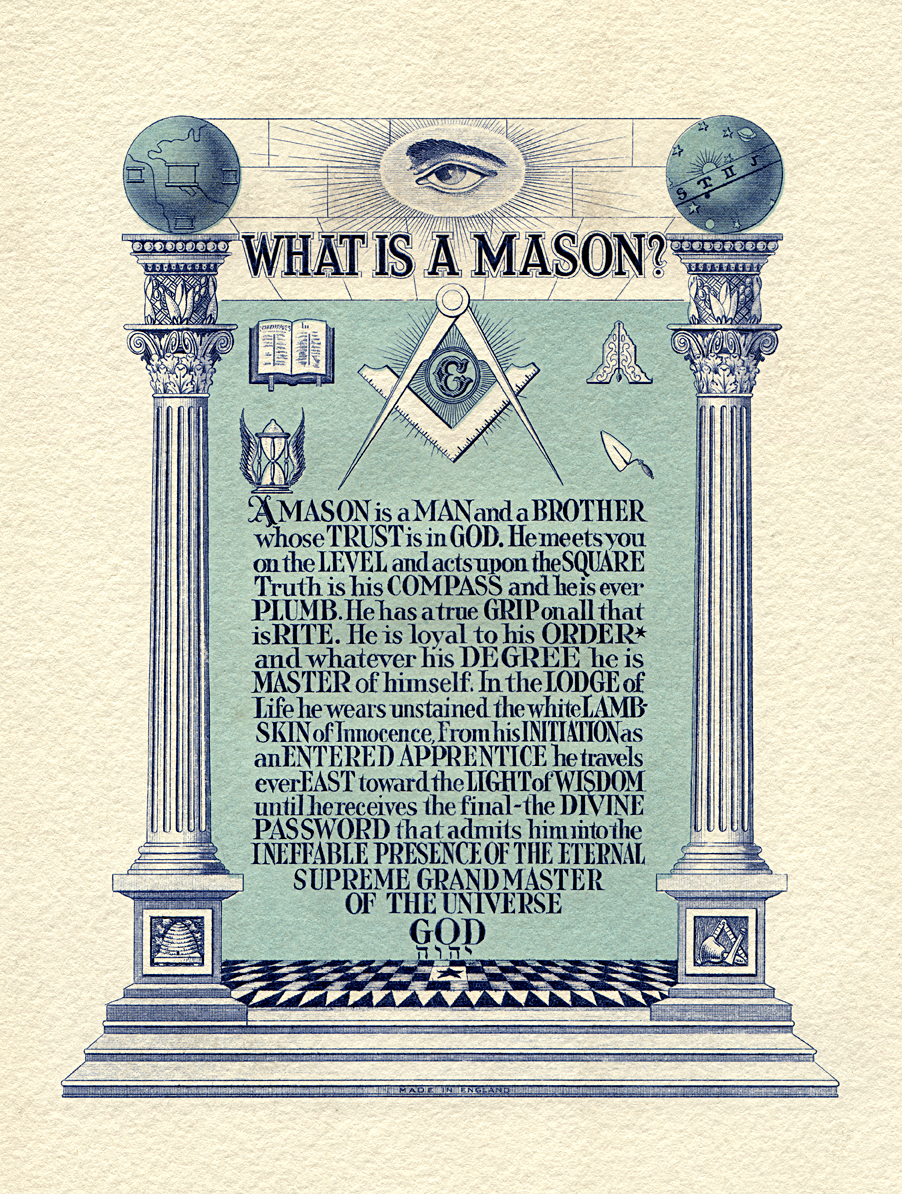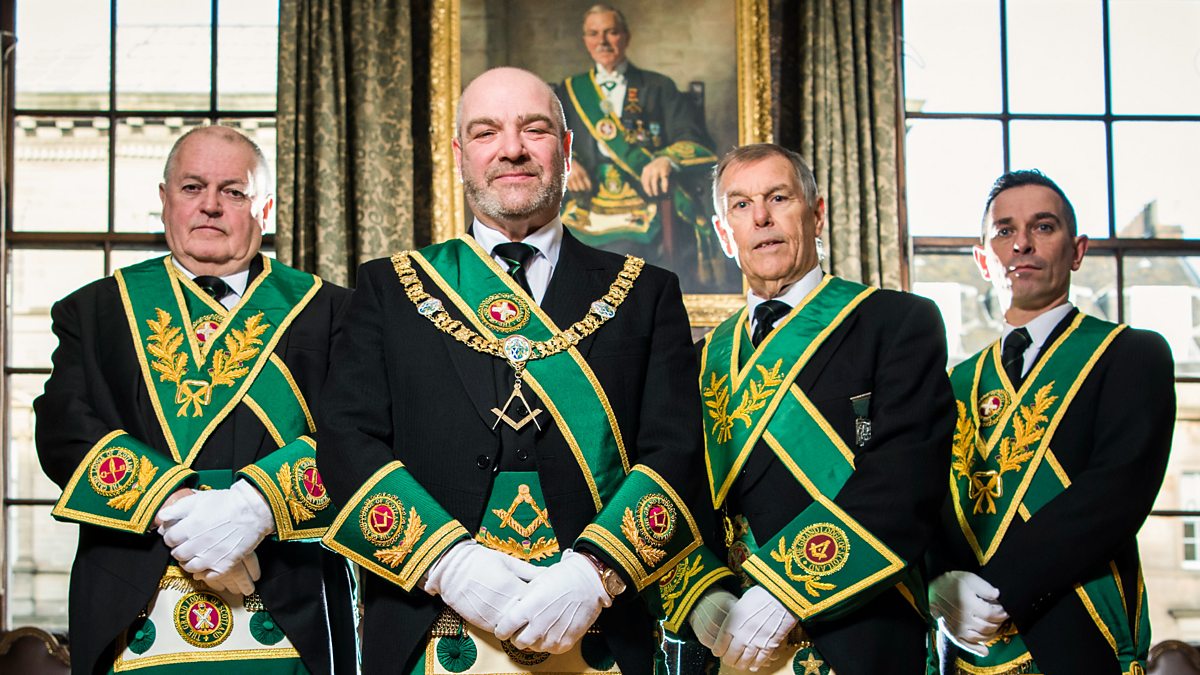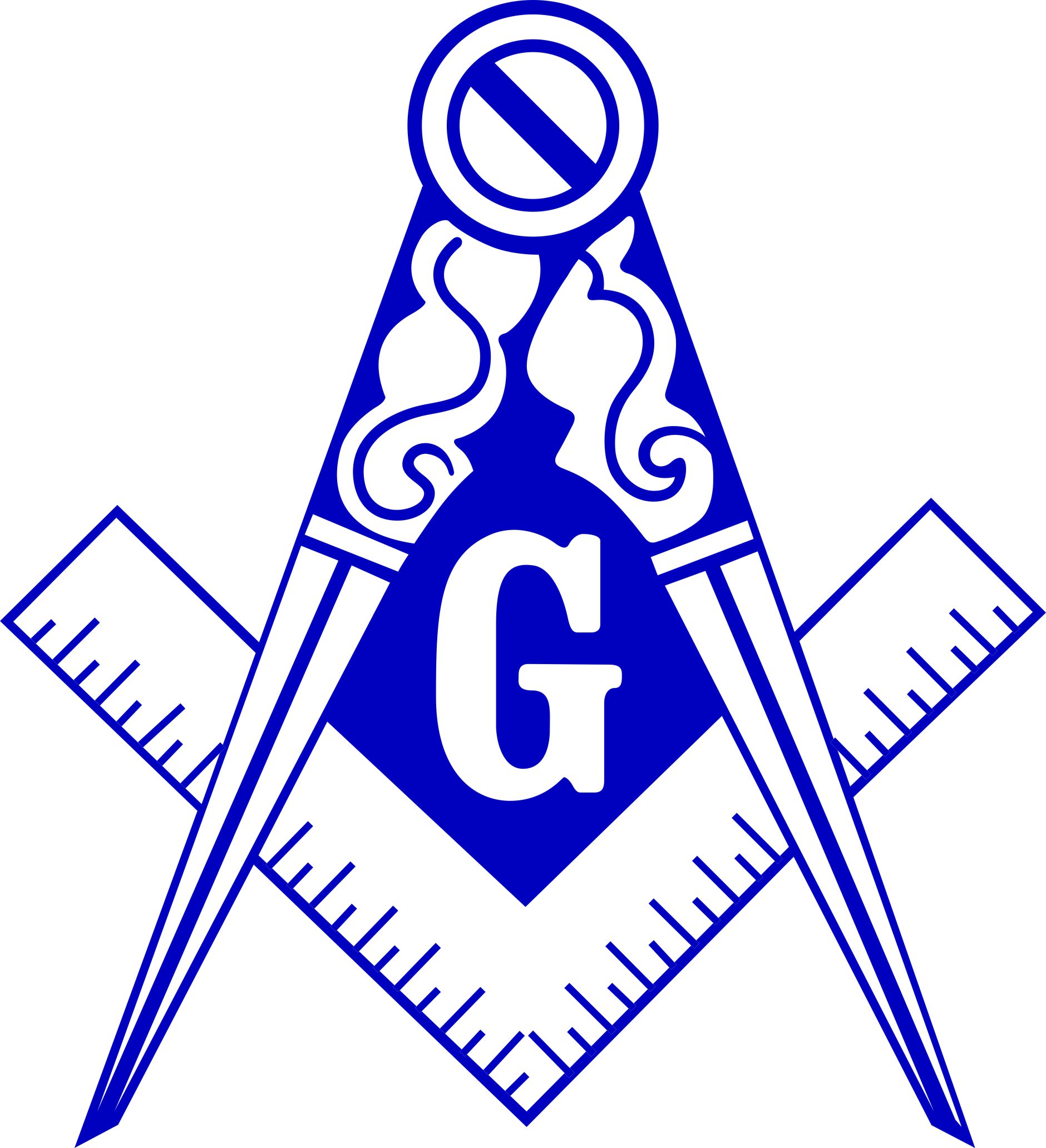Mason Dean Age - Unpacking The Legacy
Have you ever wondered about the rich history behind certain terms, especially when they connect to something as old as time itself? It's interesting, really, how words carry so much weight and how their meanings can stretch across centuries. When we hear a phrase like "mason dean age," it brings up all sorts of thoughts, doesn't it? Perhaps you picture ancient builders, or maybe you think of something even more mysterious, a secret society with a long past. Well, as a matter of fact, the idea of "mason" certainly has a deep story.
The word "mason" itself has a couple of different meanings, and each one helps us think about the concept of age in a pretty distinct way. On one hand, you have the skilled craftsperson, the one who works with stone or brick, building things that stand for many, many years. Then, there is also the idea of a "Mason" as a part of a fraternal group, a society that has been around for a very long time, uniting people with shared ideas. So, when we talk about "mason dean age," we are, in a way, exploring the different layers of history and tradition that come with the word itself.
This article will take a closer look at these different aspects, using what we know about "masons" to help us consider what "mason dean age" might mean. We will look at the long history of the fraternal group, the skills of those who build, and even a famous character from stories. It is, you know, a way to explore the idea of age through the lens of what a "mason" represents, without assuming anything specific about a person.
- Ripped Reiley
- Thanos Actor Age Squid Game
- Which Country Colonized Iran
- Moderno Sombreados Cortes De Cabello Hombres
- Post Nirvana
Table of Contents
- What Does "Mason" Mean in Relation to Age?
- How Old is the Fraternal Organization of Masons?
- Who Are These "Masons" We Hear About?
- Exploring the Character of Perry Mason and His "Age"
- General Characteristics of Masons
What Does "Mason" Mean in Relation to Age?
When we talk about "mason," there are, basically, two main ways to think about it, and each of these ways has a connection to the idea of age. One meaning points to someone who builds, someone who works with stone or brick, putting pieces together to create something lasting. This kind of work, you know, has been around for thousands of years. Think about all the old buildings that still stand today; they were put together by people with these very abilities. The age of such a craft is, arguably, as old as human civilization itself, a testament to enduring human ingenuity.
The other meaning refers to a member of a fraternal group, often called Freemasonry. This organization has a history that goes back many centuries, making it one of the oldest groups of its kind. So, when we consider "mason dean age," we are not just thinking about a number of years for a person. We are also thinking about the deep historical currents that flow through these definitions. It is, in a way, about the age of ideas, of traditions, and of skills that have been passed down through generations. The concept of age here is rather broad, encompassing both the duration of practices and the time it takes for individuals to gain mastery or join such a group.
The Ancient Roots of Masonry and "Mason Dean Age"
The origins of Freemasonry, in some respects, stretch back a long way. It is a fraternal organization that has existed for centuries, connecting people who share a common set of guiding principles and ways of thinking. This group is known for its long history, and its presence can be felt in many parts of the world, especially in places that were once part of the British Empire, like the British Isles. The sheer length of time this group has been active gives us a lot to think about when we consider "mason dean age." It is a question of how old a tradition can become, and how it manages to stay relevant through so much time.
- Squirrel Girl Punk Skin
- Where Is Phoebe Cates Now A Look Into Her Life And Career
- Discovering The Multitalented Max Minghella An Artistic Journey
- Fiona Gallagher Shameless
- From Champion To Inspiration Ronnie Coleman Now
The organization is, you know, one of the oldest fraternal groups in existence. It brings together people of good character, regardless of their different religious, ethnic, or social backgrounds, because they share a belief in something greater than themselves. This shared belief has, in fact, kept the group together for a very, very long time. So, when we think about the "age" of this kind of "mason," we are really thinking about the endurance of a collective ideal, a continuous thread running through many generations. It is not just about how many years have passed, but how much has been built upon those years.
The Skilled Worker's Journey and "Mason Dean Age"
Separate from the fraternal group, the word "mason" also means a skilled worker, someone who builds by carefully placing units of strong material, like stone or brick. This type of work, quite literally, builds the foundations of our world. Think about the age of a stonemason's skill; it is something that takes years of practice and dedication to truly master. A person does not simply become a skilled worker overnight. There is a period of learning, of doing, and of perfecting their craft. This journey, too, is a kind of "age" we can consider.
The development of such a skill involves, basically, a progression. From a beginner to someone who truly understands the material and how to shape it, there is a clear path of growth. So, when we think about "mason dean age" in this context, we are considering the time it takes for a person to gain deep expertise in a craft that has existed for a very, very long time. It is about the personal age of experience, the wisdom gained through years of working with one's hands and mind. This kind of age speaks to the accumulation of practical knowledge and refined technique.
How Old is the Fraternal Organization of Masons?
The fraternal organization known as Freemasonry has, indeed, been around for many, many centuries. It is often spoken of as the oldest and largest fraternal group in the world. This long history is a key part of its identity. When we talk about how old it is, we are looking at a tradition that has seen many changes in the world, yet has continued to exist and even grow in some places. The age of this organization is, in some respects, quite remarkable, showing a resilience that few other groups can match.
The group broadly follows three main traditions, which have developed over time, adding to its overall age and depth. Its continued presence, especially in places like the British Isles and countries that were originally part of the British Empire, shows just how deep its roots run. The age of this institution is not just a number; it represents a vast collection of shared experiences, rituals, and the collective memory of countless members over generations. It is, you know, a living history.
A Look at Global Presence and "Mason Dean Age"
Estimates suggest that the worldwide membership of Freemasonry is, apparently, quite substantial. For example, in North America alone, there are more than two million Freemasons today. This widespread presence, which has built up over a long period, contributes to the idea of the organization's "age." It is not just old in terms of years, but old in terms of its reach and the number of people who have been a part of it. The "mason dean age" here might refer to the collective age of its members, or the cumulative experience they represent.
The fact that it unites men of good character, who, despite having different religious, ethnic, or social backgrounds, share a common belief, speaks to its enduring appeal. This ability to bring people together has, basically, allowed it to persist and grow over many generations. The age of its global footprint is, you know, a story of continuous connection and expansion, showing how a set of values can transcend time and borders.
Who Are These "Masons" We Hear About?
Masons, also known as Freemasons, are members of this very old and very large fraternal group. They are part of an ancient tradition, complete with their own unique ways of doing things and special symbols. When someone becomes a Mason, they are, in a way, joining a long line of people who have come before them. This connection to the past is a big part of what being a Mason is all about. It is, you know, a shared heritage that spans many years.
The full name for these members is often "Ancient Free and Accepted Masons," or sometimes just "Freemasons." This name itself hints at the long history and the traditional aspects of the group. They are men who believe in brotherhood and helping others, principles that have been important to the organization for a very, very long time. So, when we consider "mason dean age" in relation to these individuals, we are thinking about the age of a person when they become a part of this ancient tradition, and the years they spend contributing to its ongoing story.
Degrees and Progressions for a "Mason Dean Age"
Within the fraternal organization, members can earn different "degrees." Each degree represents a different stage in a member's journey within the group. As a Mason, you can, in fact, earn these degrees, join specialized groups, and become familiar with the particular language and customs of the organization. This progression through different stages is, arguably, a kind of personal "age" within the group. It is about how long someone has been a member and how far they have advanced in their understanding of its principles.
Learning about Freemasonry involves understanding the history of the fraternity, what takes place in a Masonic lodge, and how someone can become a Mason. Each step of this learning process adds to a member's experience and, in a way, their "age" within the group. The accumulation of these experiences and the gaining of these degrees contribute to a member's personal journey, reflecting the time and effort they have put into their involvement. It is, you know, a measure of their dedication over time.
Exploring the Character of Perry Mason and His "Age"
Beyond the fraternal organization and the skilled worker, the name "Mason" also appears in popular culture, such as with the character Perry Mason. This character was created by Erle Stanley Gardner and became very well-known through television shows, with actors like Raymond Burr, Barbara Hale, William Hopper, and Ray Collins bringing the stories to life. The trials of a master criminal defense attorney handling very difficult cases were a big part of the show. So, when we talk about "mason dean age" in this context, we are looking at the age of a fictional character and the stories they inhabit.
The "age" of a character like Perry Mason is, basically, about how long they have been a part of our collective storytelling. From the time they were created to how long their stories have been watched or read, this is another way to think about "age" connected to the name "Mason." It is about the lifespan of a cultural icon, and how many generations have come to know and enjoy their adventures. This kind of age is, you know, a measure of lasting popularity and cultural impact.
The Fictional "Mason Dean Age" in Storytelling
The creation of a character like Perry Mason means that the "mason dean age" can also refer to the longevity of a story or a series. The trials he faced, the mysteries he solved, these all contributed to a long-running narrative that captured the attention of many people for a very, very long time. The age here is not just about the character's personal years within the story, but the duration of the story's presence in the public eye.
It is, you know, a different kind of age altogether, one that speaks to the power of fiction to endure and to resonate across different periods. The fictional "mason dean age" is, in some respects, a measure of how long a story can remain popular, how many new viewers or readers discover it, and how it continues to be discussed and remembered through the years. It is a testament to the lasting appeal of well-crafted narratives.
General Characteristics of Masons
When we think about "masons" in general, whether it is the skilled worker or the member of the fraternal organization, there are some shared ideas that come to mind. These individuals are often associated with building, with tradition, and with a sense of community. The characteristics that define them have, in fact, been passed down through generations, contributing to the enduring nature of the "mason" identity. This continuity is, you know, a big part of their overall "age" as a concept.
Freemasons, for example, are popularly known for certain things like their white aprons, their unique symbols, and even a secret handshake. These elements are part of an ancient tradition that they uphold. The qualities that make up a "mason" are tied to these long-standing practices and beliefs. It is about a commitment to shared values and a connection to a history that stretches back a very, very long time.
Personal Details and Bio-Data of the "Mason" Concept
Since "Mason Dean" is not a specific person in the information provided, we can think about the "personal details" of the *concept* of "mason" itself, as described in the text. This helps us to understand the general attributes associated with the term, rather than a specific individual's life. This approach allows us to consider the "mason dean age" from a more abstract point of view, focusing on the characteristics that define the word's various meanings over time.
Here is a table outlining the general "bio-data" of the "mason" concept based on the provided text, rather than a specific person's age or background. This table, you know, reflects the enduring nature of the term itself.
| Characteristic | Description (from provided text) |
| Core Identity | Skilled worker who builds by laying units of substantial material (like stone or brick); or a member of a fraternal organization. |
| Historical Age | Fraternal organization has been around for centuries, one of the oldest in the world. Craft of building is ancient. |
| Membership (Fraternal) | Society of men united by common values and beliefs. Over two million Freemasons in North America. |
| Values (Fraternal) | Belief in brotherhood and helping others. Unites men of good character who share a belief in something. |
| Practices (Fraternal) | Ancient tradition with rituals and symbols. Members can earn degrees, join esoteric and social organizations. |
| Cultural Reference | Character "Perry Mason" created by Erle Stanley Gardner; master criminal defense attorney. |
This table, basically, provides a way to categorize the different aspects of what "mason" means, helping us to grasp the various ways the concept of "age" applies to each. It is, you know, a way to structure our thoughts around a term that has multiple layers of meaning and history.
The discussion of "mason dean age" has explored the various interpretations of the word "mason" as provided in the source material. We looked at the historical span of Freemasonry, an organization that has existed for many centuries and continues to have a global presence. We also considered the long-standing craft of the skilled builder, a practice that has shaped human civilization for thousands of years, requiring a significant "age" of dedication and learning to master. Furthermore, the concept of "mason dean age" was applied to the enduring presence of fictional characters like Perry Mason, whose stories have captivated audiences for decades. The article, you know, highlighted how the idea of "age" can relate to traditions, skills, and even cultural phenomena associated with the word "mason," rather than a specific individual.
- Timothy Olyphant A Multifaceted Talent In Hollywood
- Which Country Colonized Iran
- 69069 Text
- From Champion To Inspiration Ronnie Coleman Now
- Unistar Two Babies One Fox

What Is A Mason

BBC Two - Secrets of the Masons

Free Masonic Emblems & Logos